A good shepherd
Obituaries
As one who serves are the words Archbishop Leonard Faulkner chose for his bishop’s motto after a “great discussion” with his family.
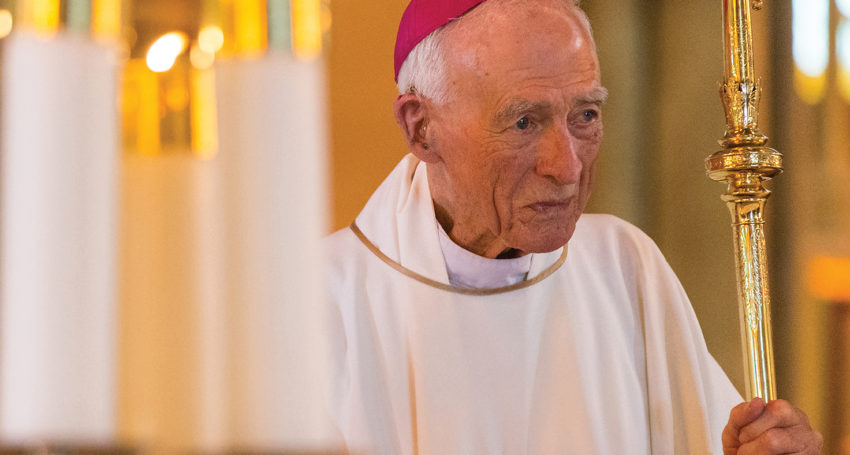
“I’ve genuinely tried to live up to that motto – I haven’t lived up to it but I’ve tried,” he once said in an interview.
It is Archbishop Faulkner’s humility, warmth and gentleness that made him so loved in the communities he served – both here in South Australia and in the northern Queensland diocese of Townsville.
Born in Booleroo Centre and raised on a farm at Murray Town in the southern Flinders Ranges, he retained the values of a country boy throughout his long life – never losing his down-to-earth, sports-loving nature and cheeky sense of humour.
Advertisement
As Archbishop of Adelaide he would receive a mysterious complimentary pass each year to the Test match at Adelaide Oval which he happily used but with the qualification that he would never have paid to become a member because “it’s a rich man’s place, you know”.
His ‘ordinariness’ earned him wide respect from the people he served and the broader community – tributes after his death described him “a man of the people”, “a true gentleman” and someone who listened without judging.
The foundation of his faith came from his family, particularly his parents Vin and Frances. In hard times his father would constantly tell him “God will look after us”.
The eldest of 10 children, he was educated by the Sisters of St Joseph locally before attending Sacred Heart College for a year as a boarder. At 16, he joined the first group of young men to enter the newly-established seminary at Rostrevor and after completing his studies in Italy he was ordained a priest on January 1 1950 at Propaganda College, Rome.
Returning to Australia on the SS Somersetshire, he had an emotional reunion with his parents, brothers and sisters, cousins, uncles and aunts, as well as many friends.
As assistant priest in the parish of Woodville he used to ride his bike to the “Trust homes” in Woodville West and meet families, many of whom were migrants from post-World War II Europe.
He was appointed chaplain to the Young Christian Workers movement, the beginning of his enormous commitment to, and support of, the lay people as a critical part of the life of the Church.
After 10 years as Cathedral administrator, he was appointed bishop of Townsville in 1967. He described this as a defining moment for him because he was entrusted with implementing the spirit and teachings of the Vatican Council to the people.
As Archbishop of Adelaide from 1985 to 2001, he continued his commitment to involving the laity and began a program of visitation to parishes and migrant groups, an experience which gave him the opportunity to “appreciate God’s goodness working in and through me for these people”.
Advertisement
He established the Diocesan Pastoral Council and pioneered an Australian model of Basic Ecclesial Communities (now Neighbourhood Centres). He was passionately involved in ecumenical initiatives, support for Aboriginal communities and continued his great love for the YCW movement. Visiting parishes and schools also brought him much joy and one youngster once told him he was the happiest man he had ever met.
His leadership during the AIDS epidemic, which included the establishment of the Diocesan AIDS Council, an educative body that also supported those affected, won him wide praise.
A highlight of his time as Archbishop was a trip to South Africa in 1990 when Nelson Mandela had just been released from prison. He visited black townships, prisons, unions and the ANC. He was invited back as an international observer for the first democratic election in April 1994.
After Archbishop Faulkner’s retirement in 2001 he continued to serve the people – sitting on various committees, saying Mass regularly and visiting the sick. He also served as chair of a State Government ministerial advisory board on ageing.
Related Story
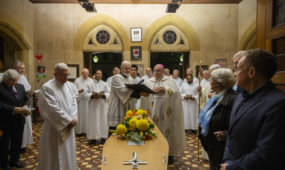 News
News
Huge turnout to farewell Archbishop Faulkner
With more than 60 first cousins (his father was one of 15), family gatherings were a common occurrence. He was a generous host at his suburban home at Netley which he shifted into when he began his episcopacy in Adelaide and remained until last year when he moved to the Pines Lodge.
In 2016 he completed his memoirs, A Listening Ministry, which he compiled with Adelaide theologian Fr Michael Trainor who conversed with him once a fortnight for two and a half years.
In his foreword, Fr Trainor wrote that “it was a privilege and humbling experience to listen to this thoroughly open and great Australian Bishop share his life”.
“The greatness of this man,” he continued, “is typified not by the ecclesiastical or civil honours that sometimes are acclaimed as emblems of importance, but by a life lived simply, openly and trustingly, and characterised by a spirit of listening.”
Last November, Archbishop Faulkner became only the third bishop in the history of the Australian Catholic Church to reach his 50-year episcopal milestone.
He celebrated his last Mass on Good Shepherd Sunday.
Delivering his tribute at the funeral Mass, Fr Maurice Shinnick said Archbishop Faulkner was a good shepherd who gave his life as one who serves “without counting the cost and always with a great spirit of optimistic joy”.



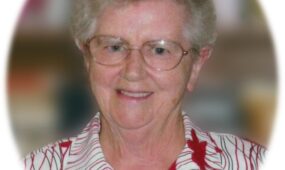
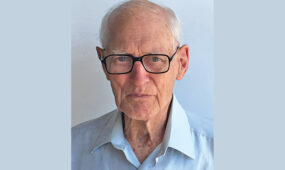
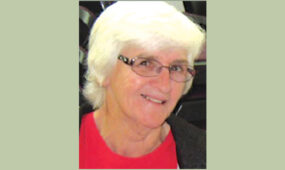
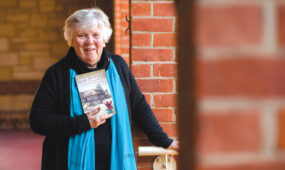

Comments
Show comments Hide comments